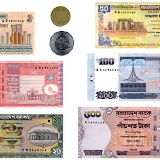Alerts :
WW Leads Proposal on Internet remittances services IPSP and WOS or POS partnership or commission sharing Venture through CO-Branded or Carbonated debit cards under retention AML international and Bangladesh Bank laws policies.
Introduction:
PayPal and Payoneer is unique systems without requiring any Banks account. Send money is easy secured and inexpensive too. Money can be reload through Western union points other than Master cards is also so simple to accomplished a transaction within 30 seconds time. Enable the recipients to withdraw from any ATM world wide. A part from this sender may use the unique mobile transfer facilities too. To penetrate, grab the market share we have to familiar the products first. We go for any secured providers dealing a like card cards. PayPal operating 190 countries ww other than Bangladesh.
Overviews:
Non resident migrant and their Remittances a fortune. An injector and generator of direct and indirect stimulus to the concerned economy and world as whole too. USA EU and GCC countries are the major employer and Mexico Brazil India Philippines followed by Pakistan Srilanka Indonesia and Bangladesh are amongst the leading manpower exporting countries. South east Asia playing a pioneering role in this sector.
So far Bangladesh concerns a 88 millions or in brief One billion people working in and around the globe. At present the inflow of white official remittances is about 10 bn USD with a incremental rate of 25-30% per year too. The second largest foreign exchange earning sources of Bangladesh after Leading Garments Expo.
The global remittance market is the major growth driver for mobile money transfer. The World Bank estimates current market remittance market to be about $318 billion, on adding contribution from informal transactions, it increases to about $600 billion. The World Bank expects this market to grow to $72 trillion by the end of 2030.
The growth in remittances is mainly driven by the rise in migrants, who regularly send money to their families at home. Western Union estimates global migration population to be 280 million by 2050. This growth would be driven by countries such as China, India, Mexico and Philippines.
According to World Bank, in 2007, migrant workers from developing countries sent home $240 billion, compared to $221 billion in 2006. The three major remittance receiving countries in 2007, as reported by the World Bank, were India ($27 billion), China ($25.7 billion) and Mexico ($25 billion).
In many developing countries, particularly Asian countries, the money received from remittances is a major source of national income. For example in Philippines, remittance contributes immensely to the country's GDP. Income from remittances is sometimes more than income from Foreign Direct Investment and International Aid donations in most recipient countries.
Bangladesh is more mobile friendly country than India, but far beyond to think of it but happy with the expensive time consuming drafts system through exchange houses via subsidiaries. So many middle man involved to complete a circle of single issue. Internet or web pay out solution through debit card cards co-branded and carbonated with the partners LOGO to the clients wallets is easy inexpensive dynamic magical secured systems. This is thrust and promising HUGE sector of 15 billion USD by the year 2010 .
About a year, I am trying to contacts with the leading and renowned providers like PayPal Payoneer along with our local private and some International Banks namely HSBC too. Literally and academically we are familiar with terms "Courtesy cost is nothing but we gain much of it and your co-operation solicited your always" but in practice and virtually responds is very much poor !
The primary proposed four station points Areas Are :
01. 2 Base DUBAI / ABU DHABI- United Arab Emerets UAE ( A GCC country) about 1/2 million people of my area over there. For your kind information I was been there with my family 97-02 about 6 yers and know the whole seven Emerets well.
02. MACCA- SAUDIA or KSA ( GCC country ) only Macca and JEDDA only. Here Quarter million people and I was been there for 4 months Feb-May '97 and well known.
03. NY and DALLAS TX, USA- app. about a Quarter Million. A significant number of my UNIVERSITY ALUMNI friends and families over there and so close to me. I visited over the places Oct 20,1992 to Feb 14,1993
This is my Vision , Featured Project and looking forward to established and BECOME A PARTNER
CO- BRANDED or CARBONATED card cards with our LOGO for REMITTANCE PAY OUT SOLUTION ( web out solution WOS pay out solution POS Internet provider service protocol IPSP) With my relation in conjunction with Renowned Brands, Exchange houses financial institution and so on.
Estimated Market Volume In terms of USD : 20% of total Remittance $3-4 Billions.
Estimated time period to GRAB THE MARKET 2-3 years
Targeted Initial Volume with in three months Quarter upon start :USD Five Million
I had have good contact and know how about the peoples, Pockets, markets, Remittances systems. My University Alumni friends over there, Who are very much established and capable of helping/joining in these regards.
Other than this NRB's around the globe may participate to join with this projects too. This is our social and corporate responsibilities to facilitate our Non residents with the latest easy safe inexpensive remittances payout solutions.
Please contct more .......Now!
WW Leads Proposal on Internet remittances services IPSP and WOS or POS partnership or commission sharing Venture through CO-Branded or Carbonated debit cards under retention AML international and Bangladesh Bank laws policies.
Introduction:
PayPal and Payoneer is unique systems without requiring any Banks account. Send money is easy secured and inexpensive too. Money can be reload through Western union points other than Master cards is also so simple to accomplished a transaction within 30 seconds time. Enable the recipients to withdraw from any ATM world wide. A part from this sender may use the unique mobile transfer facilities too. To penetrate, grab the market share we have to familiar the products first. We go for any secured providers dealing a like card cards. PayPal operating 190 countries ww other than Bangladesh.
Overviews:
Non resident migrant and their Remittances a fortune. An injector and generator of direct and indirect stimulus to the concerned economy and world as whole too. USA EU and GCC countries are the major employer and Mexico Brazil India Philippines followed by Pakistan Srilanka Indonesia and Bangladesh are amongst the leading manpower exporting countries. South east Asia playing a pioneering role in this sector.
So far Bangladesh concerns a 88 millions or in brief One billion people working in and around the globe. At present the inflow of white official remittances is about 10 bn USD with a incremental rate of 25-30% per year too. The second largest foreign exchange earning sources of Bangladesh after Leading Garments Expo.
The global remittance market is the major growth driver for mobile money transfer. The World Bank estimates current market remittance market to be about $318 billion, on adding contribution from informal transactions, it increases to about $600 billion. The World Bank expects this market to grow to $72 trillion by the end of 2030.
The growth in remittances is mainly driven by the rise in migrants, who regularly send money to their families at home. Western Union estimates global migration population to be 280 million by 2050. This growth would be driven by countries such as China, India, Mexico and Philippines.
According to World Bank, in 2007, migrant workers from developing countries sent home $240 billion, compared to $221 billion in 2006. The three major remittance receiving countries in 2007, as reported by the World Bank, were India ($27 billion), China ($25.7 billion) and Mexico ($25 billion).
In many developing countries, particularly Asian countries, the money received from remittances is a major source of national income. For example in Philippines, remittance contributes immensely to the country's GDP. Income from remittances is sometimes more than income from Foreign Direct Investment and International Aid donations in most recipient countries.
Bangladesh is more mobile friendly country than India, but far beyond to think of it but happy with the expensive time consuming drafts system through exchange houses via subsidiaries. So many middle man involved to complete a circle of single issue. Internet or web pay out solution through debit card cards co-branded and carbonated with the partners LOGO to the clients wallets is easy inexpensive dynamic magical secured systems. This is thrust and promising HUGE sector of 15 billion USD by the year 2010 .
About a year, I am trying to contacts with the leading and renowned providers like PayPal Payoneer along with our local private and some International Banks namely HSBC too. Literally and academically we are familiar with terms "Courtesy cost is nothing but we gain much of it and your co-operation solicited your always" but in practice and virtually responds is very much poor !
The primary proposed four station points Areas Are :
01. 2 Base DUBAI / ABU DHABI- United Arab Emerets UAE ( A GCC country) about 1/2 million people of my area over there. For your kind information I was been there with my family 97-02 about 6 yers and know the whole seven Emerets well.
02. MACCA- SAUDIA or KSA ( GCC country ) only Macca and JEDDA only. Here Quarter million people and I was been there for 4 months Feb-May '97 and well known.
03. NY and DALLAS TX, USA- app. about a Quarter Million. A significant number of my UNIVERSITY ALUMNI friends and families over there and so close to me. I visited over the places Oct 20,1992 to Feb 14,1993
This is my Vision , Featured Project and looking forward to established and BECOME A PARTNER
CO- BRANDED or CARBONATED card cards with our LOGO for REMITTANCE PAY OUT SOLUTION ( web out solution WOS pay out solution POS Internet provider service protocol IPSP) With my relation in conjunction with Renowned Brands, Exchange houses financial institution and so on.
Estimated Market Volume In terms of USD : 20% of total Remittance $3-4 Billions.
Estimated time period to GRAB THE MARKET 2-3 years
Targeted Initial Volume with in three months Quarter upon start :USD Five Million
I had have good contact and know how about the peoples, Pockets, markets, Remittances systems. My University Alumni friends over there, Who are very much established and capable of helping/joining in these regards.
Other than this NRB's around the globe may participate to join with this projects too. This is our social and corporate responsibilities to facilitate our Non residents with the latest easy safe inexpensive remittances payout solutions.
Please contct more .......Now!









